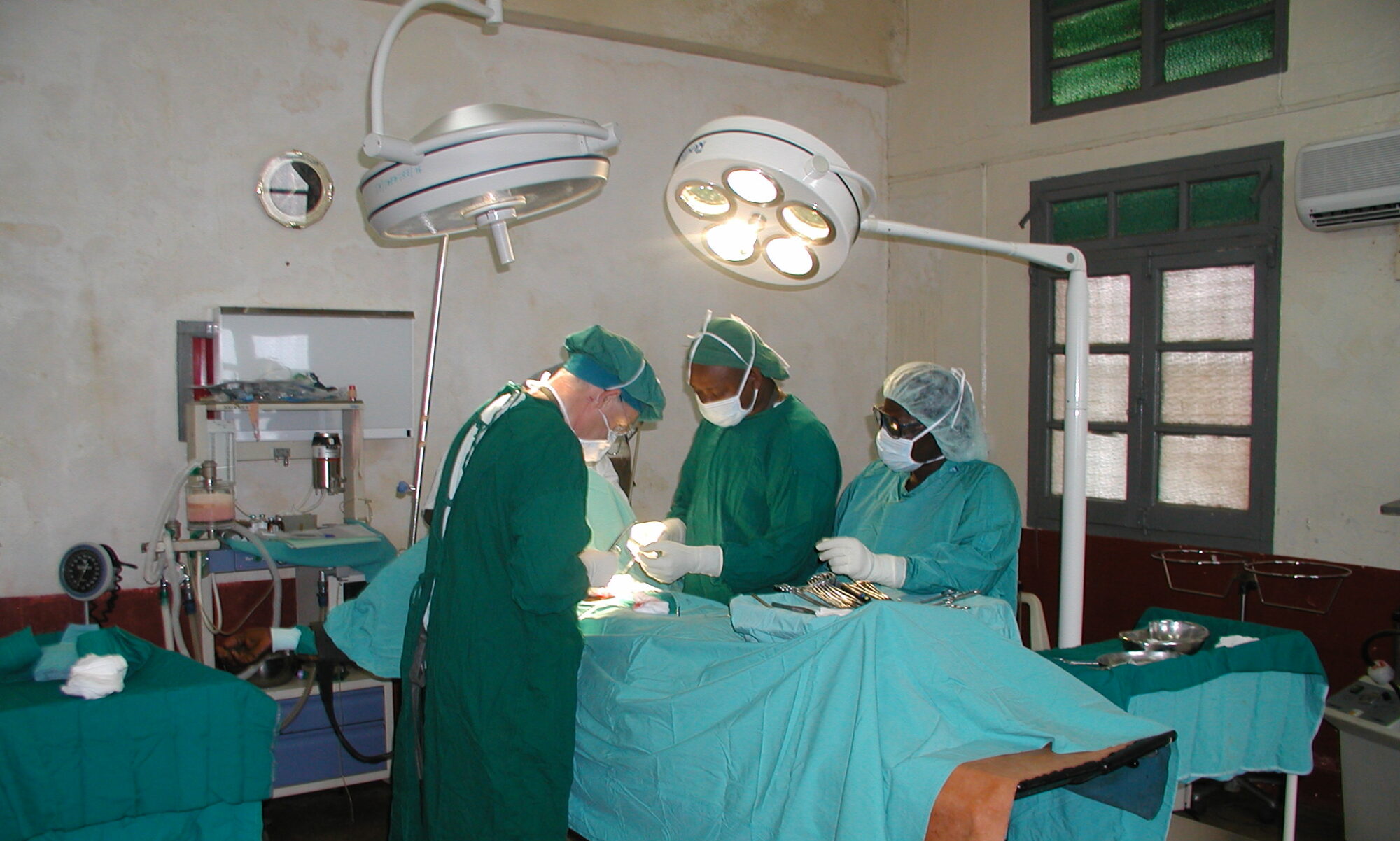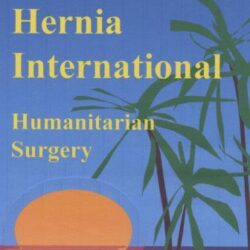REPORT
Dates: November 9 through November 17, 2024
Host: Sisters of Nativity Hospital and Convent, Abuja Nigeria
Team members: Alan Kravitz, MD, Daniel Scarpetta, MD, Rony Ramia, MD Total cases: 126
Total patients: 117
Peds: 33

Background: The Sisters of Nativity (SON) Hospital and convent is located in Kamu, Nigeria. They provide primary care, OBGYN services, and some surgeries to their community.
Trip report: We arrived on the evening of November 9, 2024, after having flown into Abuja airport. We were met outside the airport by hospital staff, and brought to the SON compound. It is a 50 minute drive over good roads. We arrived at the convent to an enthusiastic welcome.
SON had done some publicity for this mission, so there were patients ready for surgery on Saturday, November 10. In addition, we were screening new patients both before the cases that day, and in between surgeries. Except for two patients with lipomas, all patients had either hernias, hydroceles, or testicle masses.
The adult inguinal hernia surgeries were done under local anesthesia. Pediatric cases were done with IV ketamine and diazepam, which was administered by a local physician. Selected adult patients were also given intravenous sedation, based on body habitus and nature of the hernia. One patient required a spinal anesthetic due to his obesity and large epigastric hernia.
All surgeries were performed in one operating room. We generally ran two tables in this room synchronously.
There were frequent power outages, but fortunately we were prepared and brought headlamps, which were always useful due to poor OR lighting. The surgical equipment was passable, but not excellent by any means. We had brought two small kits last year, and they were still there but missing some of the instruments. We also brought (and donated) two more surgical trays.
One of the advantages of this mission is that the accommodations in the adjacent convent are terrific. We each had our own room, complete with a bathroom and shower. The air conditioning (when functioning) and comfortable beds allowed us good sleep.
The sisters prepared our meals, and we ate breakfast, lunch, and dinner together every day. They were very gracious and generous hosts.
Sunday at SON is Sabbath: no work. This year we hung out and slept. Later in the afternoon our hosts drove us around the local environs on roads that were unpaved and barely passable, even in an SUV. We then went into Abuja and met with Dr. Austin Ella, who is a senior program manager with Caritas Nigeria, the official relief and development arm of the Catholic Bishops’ Conference of Nigeria.
On Monday we began seeing increasing numbers of patients for screening and surgery. Word of our mission had gotten out into social media and patients were lining up outside of the hospital. We actually became overbooked. There were communication issues with the workers at the front desk, who over-committed us. Throughout the week we often worked until 7 or 8 pm.

Many of the hernia cases were bilateral, recurrent, or incarcerated. Operating under straight local anesthesia (marcaine + lidocaine) is more tedious, and dissection needs to be more careful. We had no electrocautery available, though this wasn’t a barrier. Most inguinal hernia surgeries don’t bleed, and suture ligature of bleeding was needed only a few times.
We even fixed a large ventral hernia under IV ketamine anesthesia. The patients were uniformly grateful. Many of them had been experiencing hernia symptoms for years without
access to surgical care. In addition to hernia repairs, we removed several symptomatic lipomas, one orchiectomy, and many adult and pediatric hydrocelectomies.
After a busy week concluded on November 16, we returned home safely the next day.
It was a very productive week, and we are making plans for returning next year. There will be a focus on coordinating the schedule between the local staff and the surgeons so that we can start at 7 am and finish around 5 pm. We also have decided to limit our pediatric cases to greater than 5 years of age. Operating on smaller children requires fine dissection instruments, which we don’t have there. Also, many of these cases (hydroceles especially) are asymptomatic and potentially will resolve with time. And given the large need and our limited time in Abuja, a bigger social impact can be achieved by operating on symptomatic adults.
This was my second year at Sisters of Nativity, and we will return next year. It has many positive aspects: Very organized host organization, large numbers of patients who need surgical care, pleasant accommodations adjacent to our surgery location, good security, and easy access to an international airport.
Here is a link to the google photo album of our week in Abuja. It also includes some videos. https://photos.app.goo.gl/dceUZfEyuMZkDouP9

